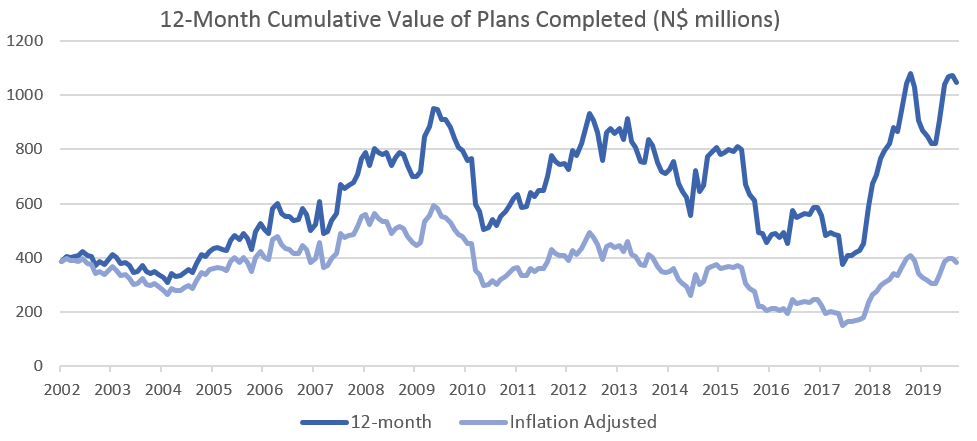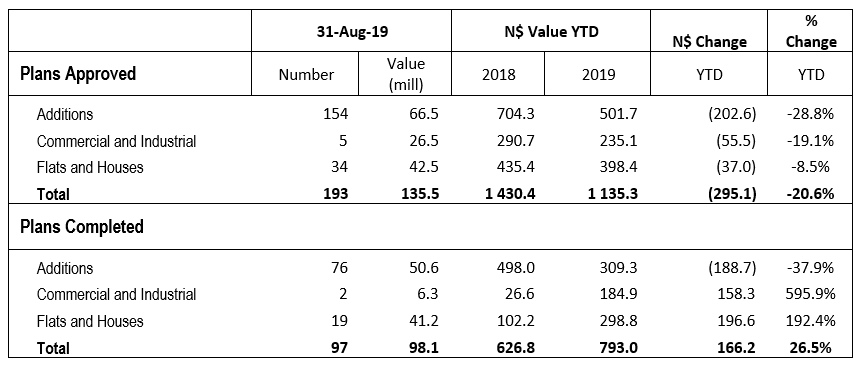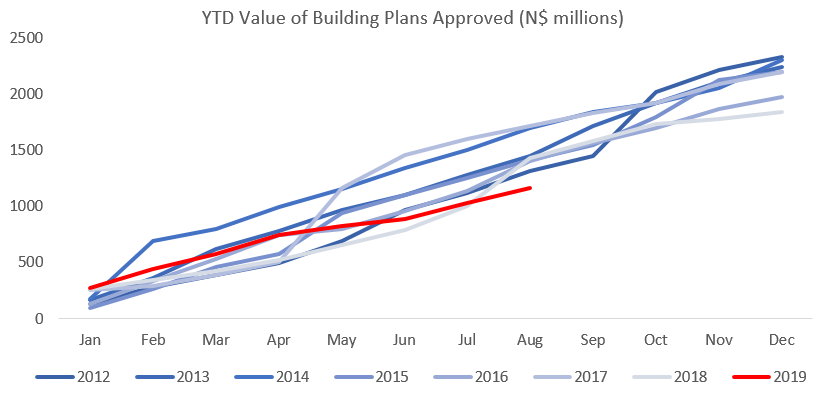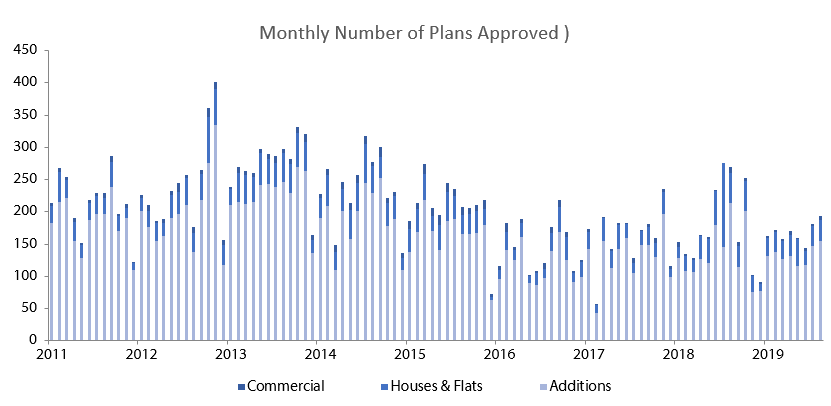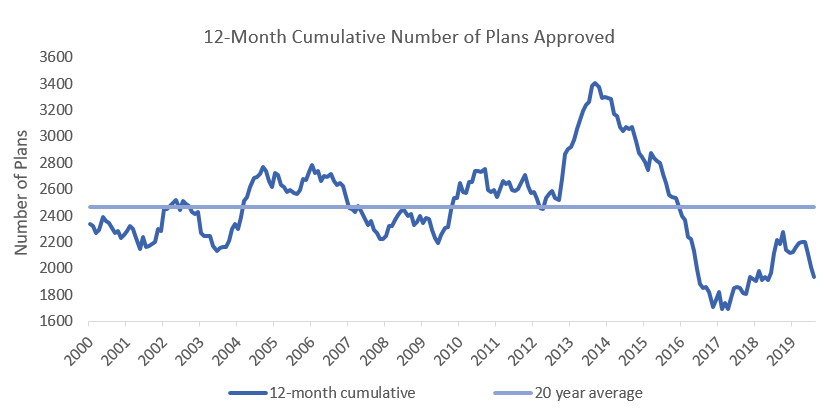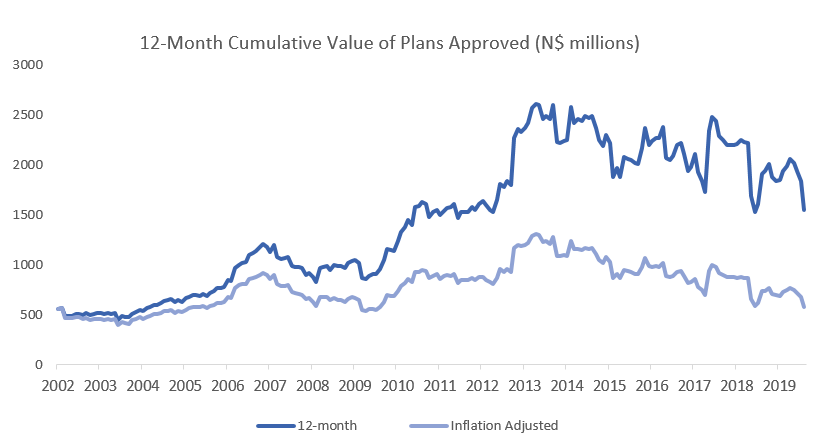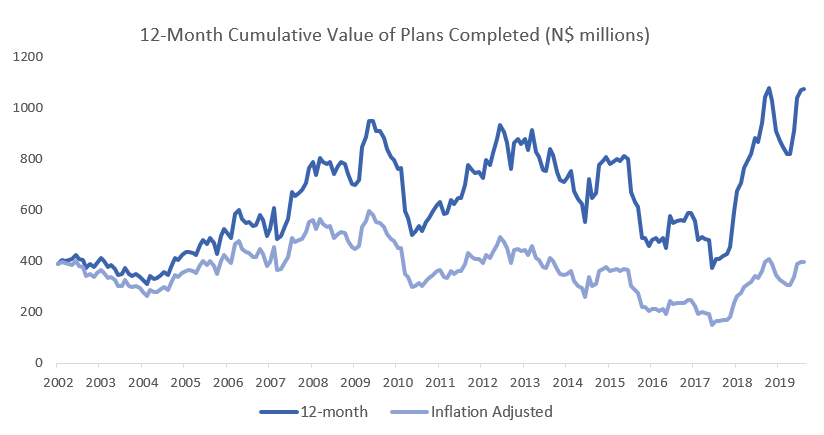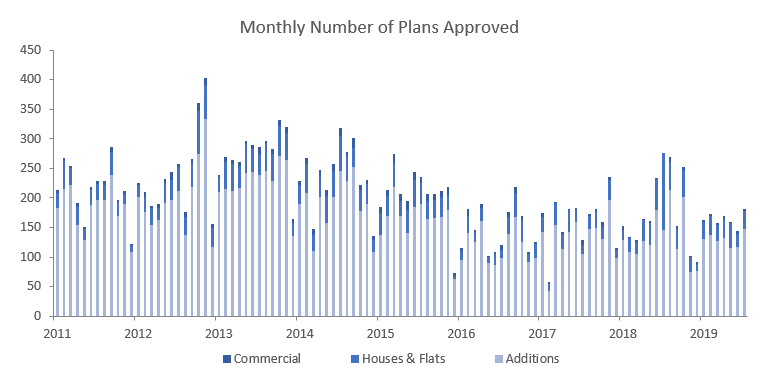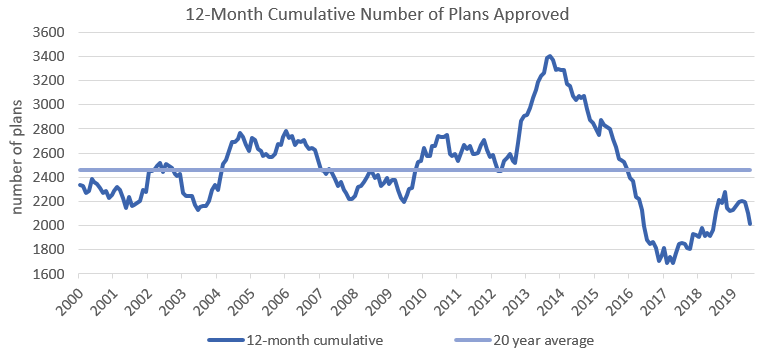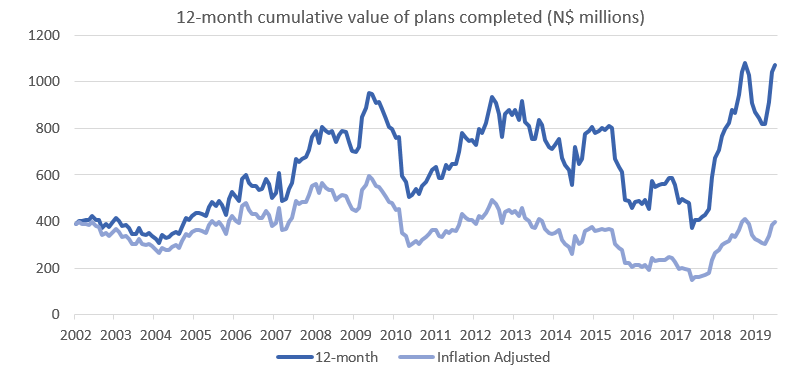
A total of 202 building plans were approved by the City of Windhoek in September. This is a 4.7% increase in the number of plans approved on a monthly basis when compared to the 193 building plans approved in August. In monetary terms, the approvals were valued at N$432.2 million, an increase of N$296.7 million or 218.9% compared to last month. The number of completions for the month of September stood at 225, valued at N$110.0 million. The year-to-date value of approved building plans currently stands at N$1.57 billion, 0.7% lower than as at the end of the third quarter of 2018. On a twelve-month cumulative basis, 1,986 building plans worth approximately N$1.83 billion were approved, a decrease in number of 9.1% y/y, but a contraction of 5.6% in value terms over the prior 12-month period.
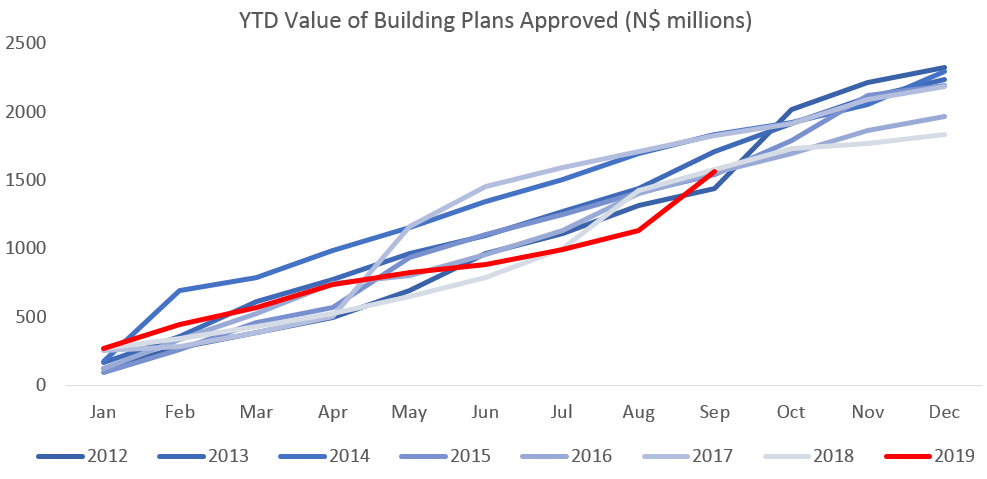
The largest portion of building plan approvals was once again made up of additions to properties, from a number perspective. 160 additions to properties were approved in September, a 3.9% increase over the number of additions approved in August. Year-to-date 1,221 additions to properties have been approved with a cumulative value of N$579.2 million, a decline of 22.6% y/y in terms of value compared to the same period in 2018. Completed additions amounted to 206, valued at N$85.6m, increasing by 171.1% y/y in number and 69.1% y/y in value. Year-to-date 813 additions have been completed to a value of N$395.0m, decreases of 55.4$ y/y in number and 36.2% y/y in value.
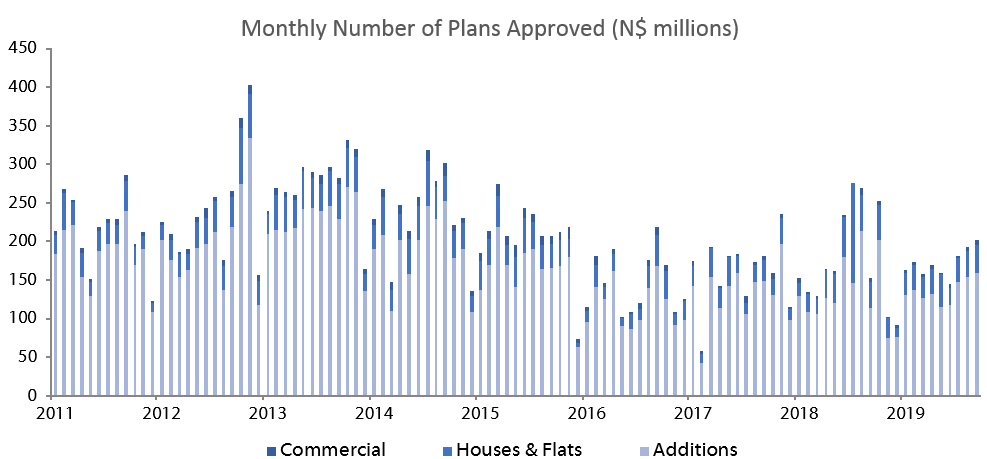
New residential units were the second largest contributor to the number of building plans approved with 35 approvals registered in September, compared to 34 in August. In value terms, N$43.6 million worth of residential units were approved in September, a 2.5% m/m increase. 285 New residential units valued at N$442.0m were approved in the first nine months of 2019, 28.2% y/y less in number and 3.9% y/y less in value than during the corresponding period in 2018. The year-to-date value of residential approvals reached N$442.0 million, 3.9% lower than during the corresponding period in 2018. 19 residential units valued at N$24.3m were completed in September bringing the year-to-date number to 225, up 275.0% y/y, and value to N$323.2m, up 216.2% y/y.
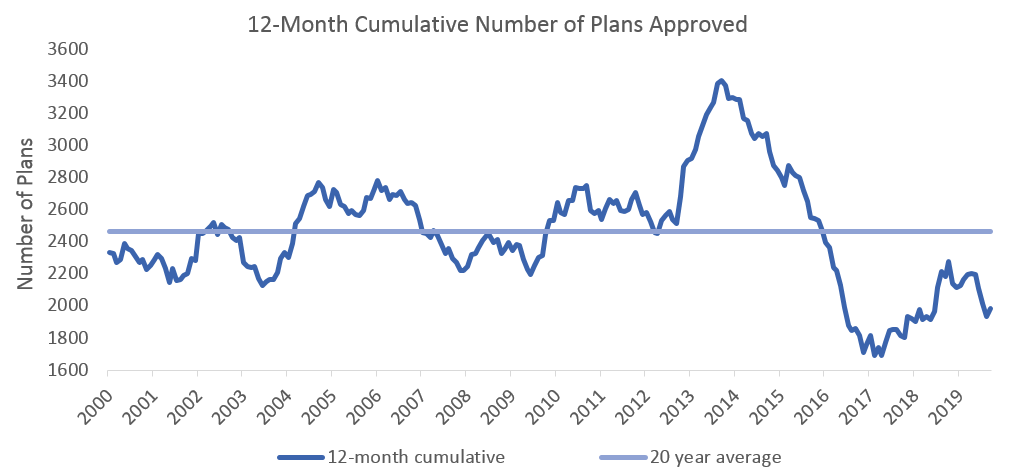
Commercial and industrial building plans approved in September amounted to 7 units, worth N$311.1 million. The number of approvals for commercial and industrial properties has been languishing in single digit territory since September 2016 and has an average approval rate of less than 4 approvals per month over the last 12 months. On a 12-month cumulative basis, the number of commercial and industrial approvals has decreased by 15.4% y/y in September to 44 units, worth approximately N$557.5 million, an increase of 34.5% in value terms over the prior 12-month period. It should however be noted that a single commercial building plan approved in September, a N$250.0 million project by Nedbank approved for the city centre, propped up the value approved year-to-date, saving the category from recording another contraction. No commercial and industrial building plans were recorded as completed in September.
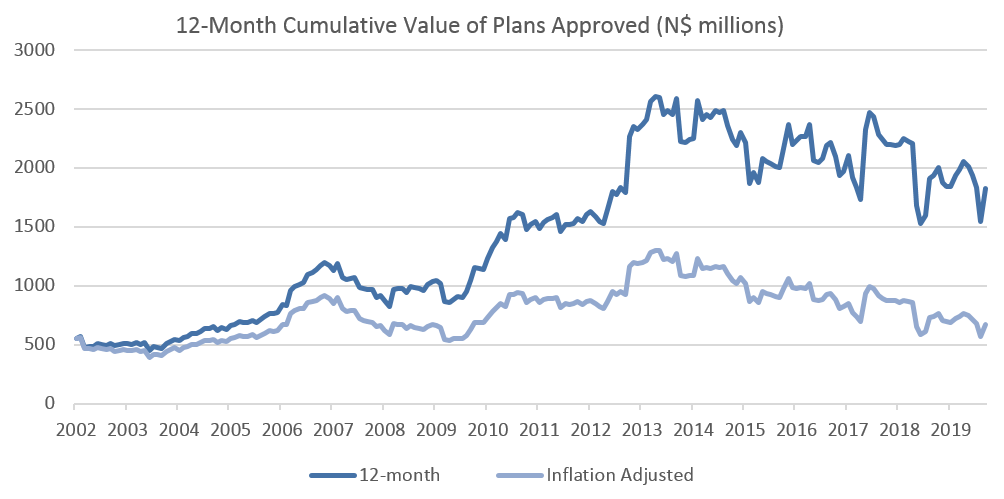
During the last 12 months, 1,986 building plans have been approved, decreasing by 9.1% y/y. These approvals were worth a combined N$1.83 billion, a decrease in value of 5.6% y/y. The number of building plans approved, on a cumulative 12-month basis, has been contracting over the last three months. The overall decrease in both number and value of cumulative plans approved is concerning as, even in nominal terms, this indicates a continuing decrease of construction activity in the capital. Low consumer and business confidence means that growth in construction activity will likely remain subdued for the short- to medium-term.
